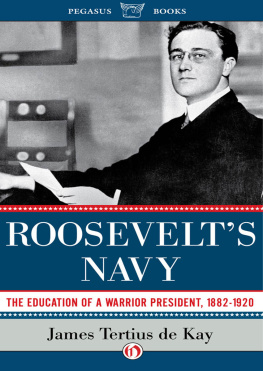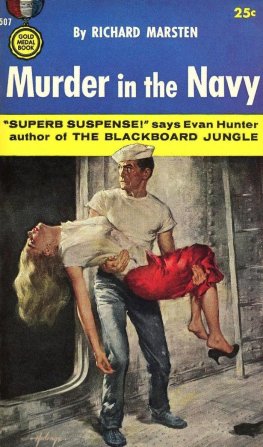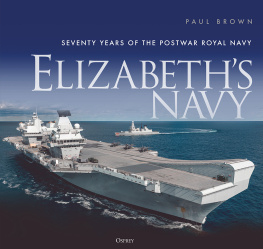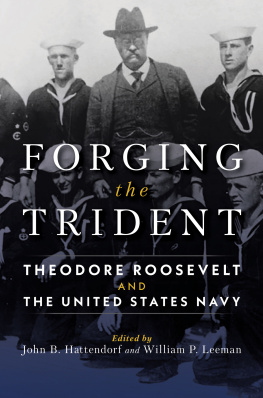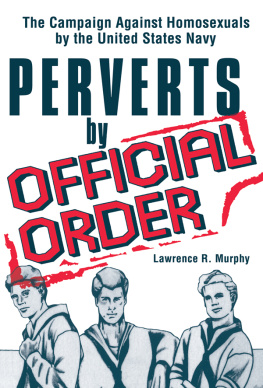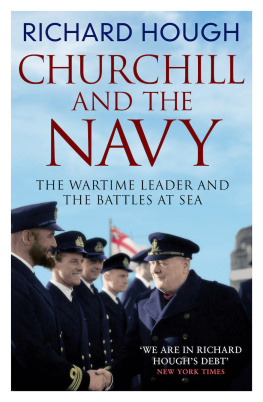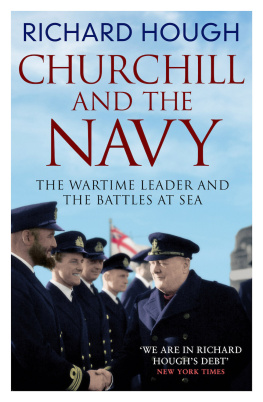de Kay - Roosevelts Navy
Here you can read online de Kay - Roosevelts Navy full text of the book (entire story) in english for free. Download pdf and epub, get meaning, cover and reviews about this ebook. City: New York, year: 2013, publisher: Pegasus Books, genre: Non-fiction. Description of the work, (preface) as well as reviews are available. Best literature library LitArk.com created for fans of good reading and offers a wide selection of genres:
Romance novel
Science fiction
Adventure
Detective
Science
History
Home and family
Prose
Art
Politics
Computer
Non-fiction
Religion
Business
Children
Humor
Choose a favorite category and find really read worthwhile books. Enjoy immersion in the world of imagination, feel the emotions of the characters or learn something new for yourself, make an fascinating discovery.
- Book:Roosevelts Navy
- Author:
- Publisher:Pegasus Books
- Genre:
- Year:2013
- City:New York
- Rating:5 / 5
- Favourites:Add to favourites
- Your mark:
- 100
- 1
- 2
- 3
- 4
- 5
Roosevelts Navy: summary, description and annotation
We offer to read an annotation, description, summary or preface (depends on what the author of the book "Roosevelts Navy" wrote himself). If you haven't found the necessary information about the book — write in the comments, we will try to find it.
Roosevelts Navy — read online for free the complete book (whole text) full work
Below is the text of the book, divided by pages. System saving the place of the last page read, allows you to conveniently read the book "Roosevelts Navy" online for free, without having to search again every time where you left off. Put a bookmark, and you can go to the page where you finished reading at any time.
Font size:
Interval:
Bookmark:

ROOSEVELTS NAVY
ROOSEVELTS NAVY
THE EDUCATION OF A WARRIOR PRESIDENT, 18821920
James Tertius de Kay

For
Al Zuckerman
who makes things happen
PROLOGUE

T he call came in from Paris shortly before three in the morning on September 1, 1939. Despite the early hour, the White House duty officer, following instructions, routed it directly through to the presidents bedroom. Franklin Roosevelt, awakened from a fitful sleep, reached for the bedside phone with a sense of foreboding.
The caller was William Bullitt, his ambassador in France, relaying a grim but long-expected message from the American embassy in Warsaw: Hitler had invaded Poland. If Britain and France fulfilled their pledges to Polandand Roosevelt was sure they wouldWorld War II had just begun.
Roosevelt knew it was likely to be a long and particularly brutal war. In the coming years millions of innocent people would die before their time, killed in ugly, sickening ways. Millions more would be maimed and crippled and otherwise have their lives destroyed.
Its come at last, he said resignedly. God help us all.
Ever since taking office in 1933, Roosevelt had watched with increasing frustration and despair as the leaders of the European democracies, anxious to avert another war so soon after their countries had been devastated by the horrors of 19141918, humiliated themselves in their efforts to accommodate Hitler, caving in to his every threat, emboldening him to constantly raise his demands.
Year after year, as another war grew increasingly likely, isolationists in Congress and elsewhere did everything in their power to keep America out of it. Their arguments were cogent, and to many Americans, persuasive. The United States had sacrificed its blood and treasure to save Europe in 1917, they argued, and had received nothing in return. Now the Europeans were up to their old tricks again. Why should America help prop up countries that couldnt manage their own survival?
But Roosevelt was convinced the isolationists were shortsighted. All his life, he had been able to see the future more clearly than most, and what he saw convinced him that World War II posed a far greater threat to the United States than World War I had. If Hitler managed to subdue the European powers, his Japanese allies on the other side of the globe would gobble up Europes undefended colonial empires and incorporate them into their Greater East Asia Co-Prosperity Sphere. America would be left to stand alone, surrounded by a very powerful and hostile world.
One way or another, Americans would be drawn into the coming war. Roosevelt was sure of that. And it was up to him to lead them in that war. He was sure of that, too. He was the right man for the job. He had the training. He had the experience. Circumstances had made the President of the United States the most powerful man on the planet and because Roosevelt had that streak of arrogance that every competent leader must have, he was convinced that he knew best how to wield that power. He knew how to mobilize the nation, and he knew how to fight wars.
For months now, he had wondered if he should break with tradition and run for an unprecedented third term. Now the late-night telephone call gave him the answer. He would run. And he would win. And then he would win the war. It seemed he had been preparing his whole life for this challenge.
After a few last words with William Bullitt in Paris, the president hung up and put in calls to his secretary of state, then his secretary of war and a few other subordinates, to tell them the news. Then he replaced the phone in its cradle and picked up a pencil and wrote on a pad that he kept at bedside:
The President received
word at 2:50 A.M. by telephone from
Ambas. Biddle through
Ambas. Bullitt that
Germany has invaded
Poland and that their
cities are being bombed.
The Pres. directed that
all Navy ships and army
commands be notified by radio at
once.
In bed
3:05 A.M.
Sept. 1 39
He initialed the note, then turned out the light and went back to sleep.
The hastily scribbled note has been carefully preserved, and today it holds a place of honor in the collection of the Franklin Delano Roosevelt Library in Hyde Park, New York. It is an interesting note, simultaneously self-revealing and detached. He refers to himself twiceas The President, as if he were making reference to some distant historical figure. It is a curious use of the third person for a master politician whose famous Fireside Chats relied so heavily on his skillful use of the first person singular.
Just as interestingly, he capitalizes the word Navy, but not army.
CHAPTER ONE

A boy sits alone, quietly reading a book.
Elsewhere in the house, the familiar sounds of servants going about their daily chores are punctuated now and then by the calm, authoritative voice of his mother or father supervising their activities. But the boy is oblivious to everything except the book in his hands.
The time is somewhere in the early 1890s, and the boy is Franklin Delano Roosevelt.
He is about ten or eleven years old, and the book he is reading represents something of a challenge. It is filled with unfamiliar technical terms, complicated charts, and curious diagrams; but because it is also filled with the clash of combat and the smell of gunpowder, and is crowded with thrilling accounts of derring-do in the age of fighting sail, the boy is enraptured and reads with the focused intensity of youth, totally lost in its pages.
He is sitting in the library of Springwood, his familys country home in the village of Hyde Park, overlooking the Hudson River about seventy miles north of New York City. We cannot be precisely sure when he first read the book he is holding, but we know he read it at an early agecertainly before his teensand we know that it was to have a powerful influence upon him throughout his life. It is almost certainly the single most important book he will ever read.
The book that has so captured his attention is The Naval War of 1812. From early childhood, Franklin has been fascinated with the sea and things maritime. He is an avid sailor, and under his fathers watchful tutelage he has learned his seamanship in knockabouts and ice boats and other small craft, and has served as crew on his fathers 51-foot sailing yacht Half Moon, during summers on Campobello Island in the Bay of Fundy, where the family keeps a cottage.
Font size:
Interval:
Bookmark:
Similar books «Roosevelts Navy»
Look at similar books to Roosevelts Navy. We have selected literature similar in name and meaning in the hope of providing readers with more options to find new, interesting, not yet read works.
Discussion, reviews of the book Roosevelts Navy and just readers' own opinions. Leave your comments, write what you think about the work, its meaning or the main characters. Specify what exactly you liked and what you didn't like, and why you think so.

